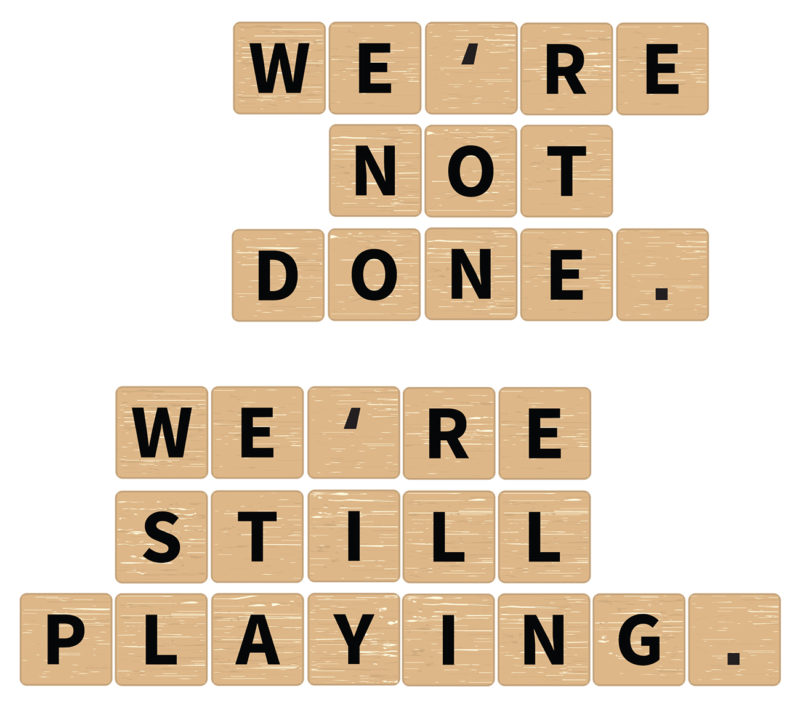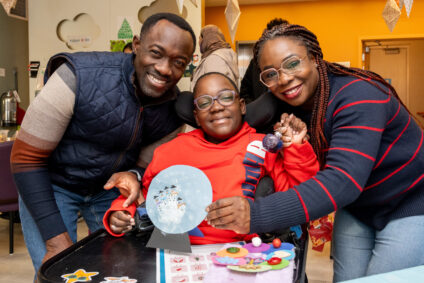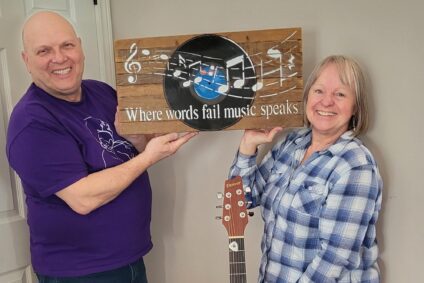Laura’s Scrabble Story: “We’re not done. We’re still playing…”


When Laura* was 12-years old, she came to Emily’s House for palliative care, and her mom and her grandma came and stayed with her. Like many kids her age, she liked music, movies and playing board games. She had a favourite doll, that looked just like her. And when friends and family would visit her here, they would bring gifts for her doll, like fancy clothes and cool accessories. Kids love that stuff, but what Laura loved more than anything else, was to play Scrabble.
Laura beat everyone at Scrabble: Mom, Grandma, and a few of our hospice volunteers, as they played for hours in the main family room at Emily’s House. She was non-verbal, seated in a wheelchair, completely dependent on others for mobility assistance and care, and, yet, she was a powerhouse at Scrabble. She used her eyes and smiles to communicate with her mom which Scrabble letter tiles she wanted to play. She could play all day, and if someone tried to wrap up a game, she would let it be known: “We’re not done. We’re still playing!”
That is one of the many, awesome things about Emily’s House – a child, like Laura, doesn’t have to stop playing. Children, youth, and young adults are well-supported in recreational activities, therapeutic music / art, food crafts, social events and celebrations, resting, memory-making, and spending time with loved ones. Each individual child is at the centre of their daily care plans and activities, which are designed to make the most of the moments available.
When Laura was with us, there were several families at Emily’s House. Often, they could be found in the Emily’s House kitchen cooking together and sharing meatballs, pastas, salad, middle eastern meals, or pizza from scratch. On the weekends, the house would be filled with extended families and visitors. In a home-like environment, our families have access to structured medical respite care, intangible peer supports, and an extended team of compassionate care workers. Families on a similar journey encourage one another – on top of the 24/7 medical psycho-social supports, recreation and therapies.
Through our PAC Community Visiting Hospice Program, some of these same families – as well as PAC hospice clients of all ages in the community – are supported when they transition between hospital, home and hospice. Our team helps to lighten the demands of complex care on caregivers, giving them more freedom to enjoy their time with their loved one. Our programs also help reduce isolation, provide practical care, and create new meaning, when that is what is needed. On the day before she died, Laura played Scrabble all day long, and the hospice team made a home video for her family. After years of complex caregiving at home, Laura’s mom, “finally got to be a mom, and I now have a video to remember that.”
As Laura’s story reminds us, a palliative diagnosis does not mean: a child is ready to stop playing; a mom is ready to stop being a mom; or, an extended family is calling it quits. It means it’s time to focus on the quality of those moments, while accessing the supports available. For one child it might be Scrabble. For another, it may be a piñata a day, baking cupcakes for her Paralympic swim team visitors, Frank Sinatra music parties, or attending a live Maple Leafs hockey game.
Caring for each individual and family is unique. For them, we hope we can count on you, to help make the most of the moments available.
To donate to help provide access to hospice care, please visit our online donation page, at:



